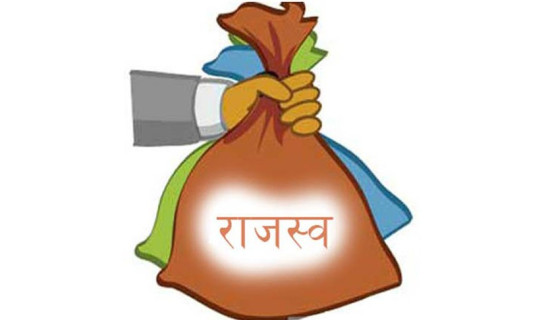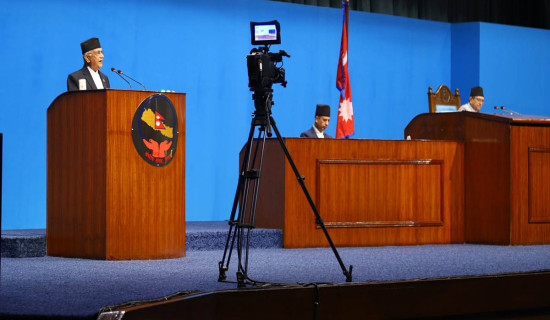- Wednesday, 23 July 2025
Unprecedented drought disrupts paddy plantation, triggers drinking water shortage in Madhes
BY BIJAY KUMAR SHAH,Dhalkebar, July 23: Madhes Province, often known as Nepal’s grain basket, is currently grappling with an unprecedented drought. The region, which plays a crucial role in national rice production, has been left parched due to a prolonged lack of rainfall. The dry spell has severely disrupted paddy plantation and triggered a drinking water crisis across major cities, including Janakpur, Birgunj, Jaleshwar, Gaur, and Lahan.
In some areas, the situation has become so dire that water tankers are being used to supply drinking water. The provincial government has even mobilised fire engines to distribute water to meet the emergency needs.
The agricultural impact has been equally devastating. Fields are cracking in the absence of rainfall, and prepared rice seedlings are withering and dying due to a lack of water. Even paddy that has already been planted is now drying out. In response, the Madhes government has officially declared the region a drought-affected zone.
Experts point to unchecked exploitation of the Chure hills, rampant deforestation, and excessive extraction of groundwater as the root causes behind the environmental imbalance. Dr. Vijay Singh Danuwar, a Chure specialist, emphasised that the present crisis was a man-made disaster. “We have long warned the authorities. Unsustainable human activities are directly responsible for the current crisis,” he stated.
According to the latest data from the Directorate of Agricultural Development in Madhes, only 33.78 per cent of the paddy plantation has been completed so far. Out of 542,580 hectares of arable land in the province, paddy is normally planted in 372,645 hectares. However, as of now, paddy has been planted only in 125,888 hectares.
While irrigation infrastructure exists, water sources are drying up. Madhes has a total of 273,410 hectares of irrigated land, supplied by canals, tube wells, and other systems. The Kamala Irrigation System, one of the province's largest, typically irrigates 25,000 hectares in Dhanusha and Siraha. But this year, even after releasing water into canals from mid-July, the low water level in the Kamala River has made irrigation increasingly difficult.
To manage the limited water, an alternating irrigation schedule has been introduced. The Kamala Irrigation Office also reported that under the Terai-Madhes Groundwater Irrigation Programme, an additional 190 hectares across Saptari, Siraha, Dhanusha, Mahottari, and Sindhuli have gained irrigation access.
Despite these efforts, many irrigation systems are facing water shortages. For instance, the Bagmati Irrigation Project covers over 45,600 hectares in Sarlahi and Rautahat, but water scarcity has forced rotation-based irrigation there as well. Similarly, the Narayani system in Parsa, Bara, and Rautahat serves over 37,400 hectares, and the Chandranahar system in Saptari covers 10,500 hectares, but both are struggling with limited river water.
Meanwhile, agricultural experts are advising farmers to switch to drought-resistant paddy varieties. Rabindra Prasad Sah, Senior Technical Officer at the National Rice Research Programme in Hardinath, Dhanusha, recommended the ‘Sukha Dhan-6’ variety, developed through collaboration between the Nepal Agricultural Research Council and the International Rice Research Institute. This strain requires significantly less water and yields 3.5 to 4.5 tons per hectare.
“Traditional rice cannot survive under current conditions,” Sah warned. “Sukha Dhan-6 is ideal for changing climate patterns and should be promoted more widely to support farmers.” The absence of timely rain, over-reliance on groundwater, and lack of climate-adaptive agricultural practices have left Madhes Province in a critical state, pointing out the urgent need for sustainable resource management and responsive agricultural strategies.




-(1)-(1)-square-thumb.jpg)
-square-thumb.jpg)




-original-thumb.jpg)





